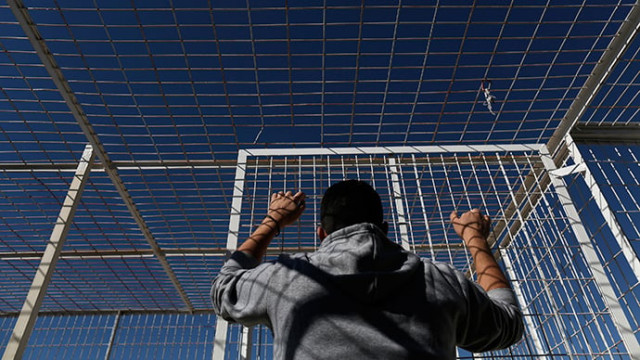Drastic rise observed in human trafficking cases
Factors like unemployment, poor policing have contributed to the upsurge in victims

Whether it is due to a policing failure or traffickers successfully exploiting the unemployment and economic situation of the country, human trafficking has seen an upsurge in the past few years.
According to data obtained by the Federal Investigation Agency (FIA), men, women, children, and transgender individuals have all fallen victims to human trafficking in the past three years. Furthermore, the data shows an upward trend - meaning that the illegal transport of Pakistanis across transnational borders to exploit them for profit has increased.
For instance, in the country’s most populous province, Punjab, the reported trafficking cases stood at 6, whereas in 2022 this number has ballooned to 217 - a staggering 3,517% increase.
Similarly, in Sindh, there were 6 cases reported in 2020 and this year the number stands at a mammoth 434 human trafficking cases - an increase of more than 7,000%. On the other hand in Khyber Pakhtunkhwa (K-P), the reported cases have fallen from 71 in 2021 to 61 in 2022. In Balochistan, there were 4 cases reported in all of 2020, this number rose to 87 in 2021, and this year it has fallen to 38.
Meanwhile, in Islamabad Capital Territory (ICT), the total reported cases of trafficking stood at 5 in 2020 and have risen to 26 in 2022. All in all, the FIA has recorded 1,300 cases of human trafficking from 2020 to 2022 - the overall numbers up until October of 2022 show that 7,000 individuals have fallen victim to trafficking, as per the records.
Legal expert and an activist, Abdullah Malik, who is based in Lahore, commenting on the drastic upsurge, said that different human rights organisations have been warning about Pakistan’s growing human trafficking crisis over the years but to no avail. “We have been asking for stricter airport checks, an increased involvement of the foreign office and embassies but the government has not paid much attention to the issue,” Malik remarked.
On the other hand, Imran Akhter Miskeen, an economist based in the city, was of the view that trafficking would further rise in the country because people were so desperate to move out of Pakistan.
“The rising unemployment and the battered economy mean that traffickers can easily manipulate people. They can sell the youth lies about better opportunities abroad and the next thing you know the youth is being illegally transported across the border,” Miskeen opined.
Former director general of the FIA, Syed Tahsin Anwar Ali Shah, when asked about the rise in trafficking, said that the main factors which contribute to the rise are inflation, unemployment, and unequal resource distribution. Shah was of the view that apart from the main factors, there was also a need to improve policing and effectively implement legislation made to curb human trafficking.“The FIA had previously created a red book in which there was a terrorist-style bounty placed on the heads of known traffickers.
However, this practice eventually slowed down. If the proclaimed offenders named in the FIA Red Book are not caught, human trafficking in the country will not decrease,” Shah predicted. However, Additional Director General of the FIA, Ehsan Sadiq, was of the view that despite the rise of trafficking in the past few years, the FIA had managed to curb the practice.
“Compared to the last two years, we have arrested more than 170 human traffickers. Many have been convicted and some are still in judicial custody.
The process of arresting human traffickers included in the FIA Red Book is also ongoing,” Sadiq told The Express Tribune.



















COMMENTS
Comments are moderated and generally will be posted if they are on-topic and not abusive.
For more information, please see our Comments FAQ